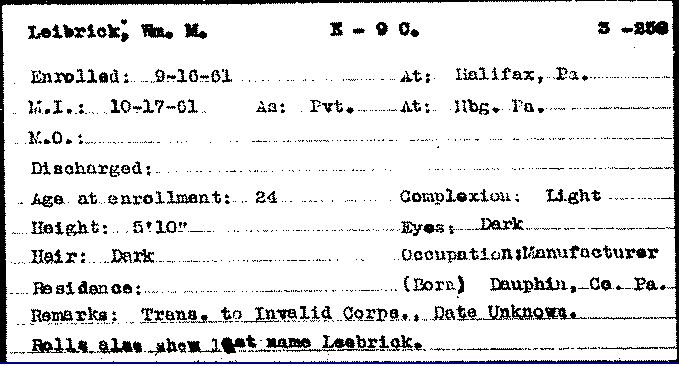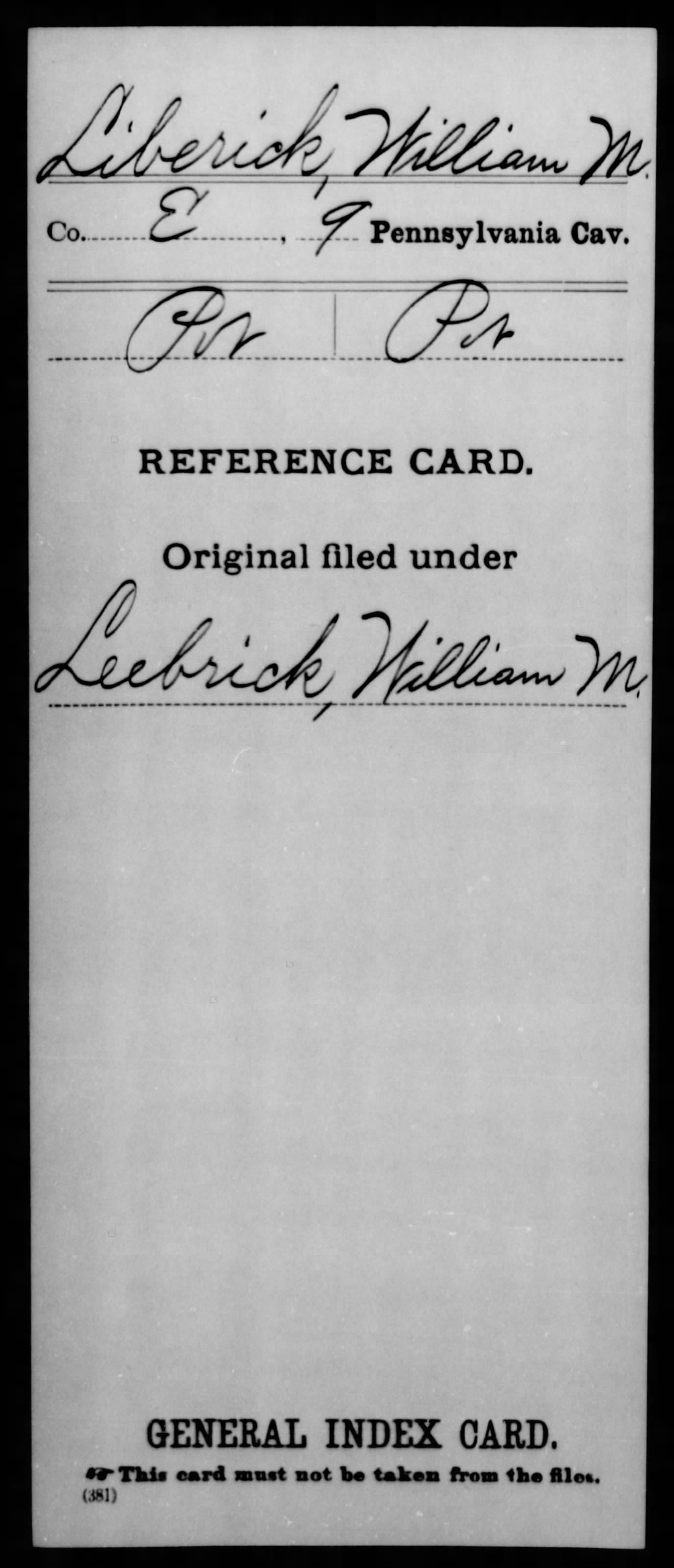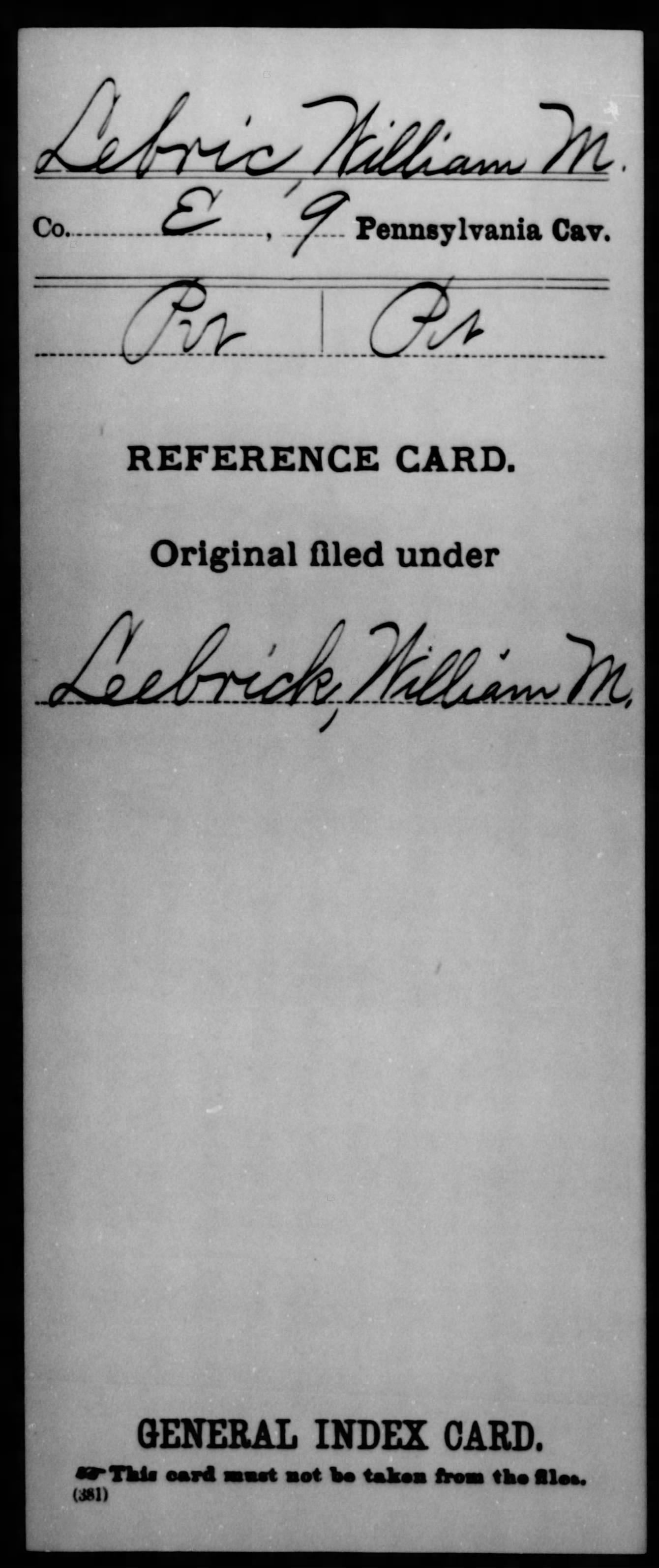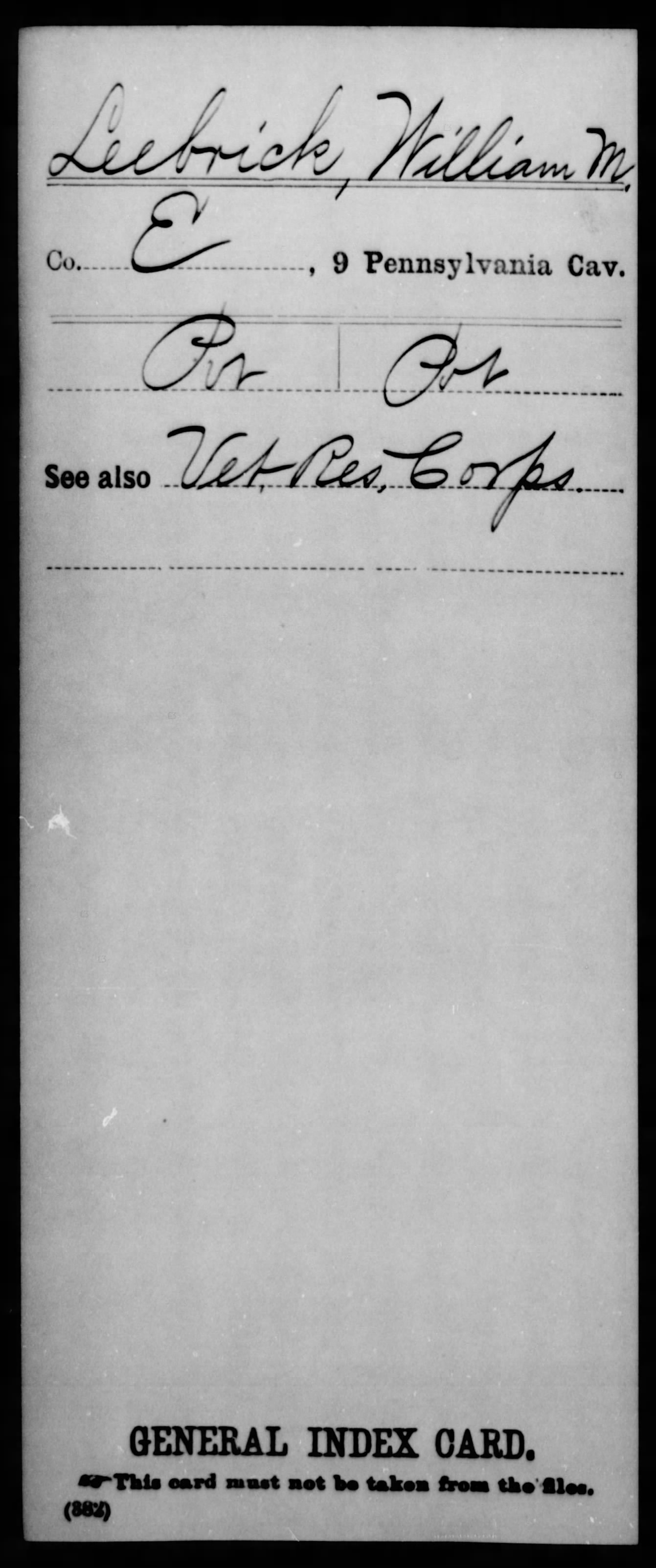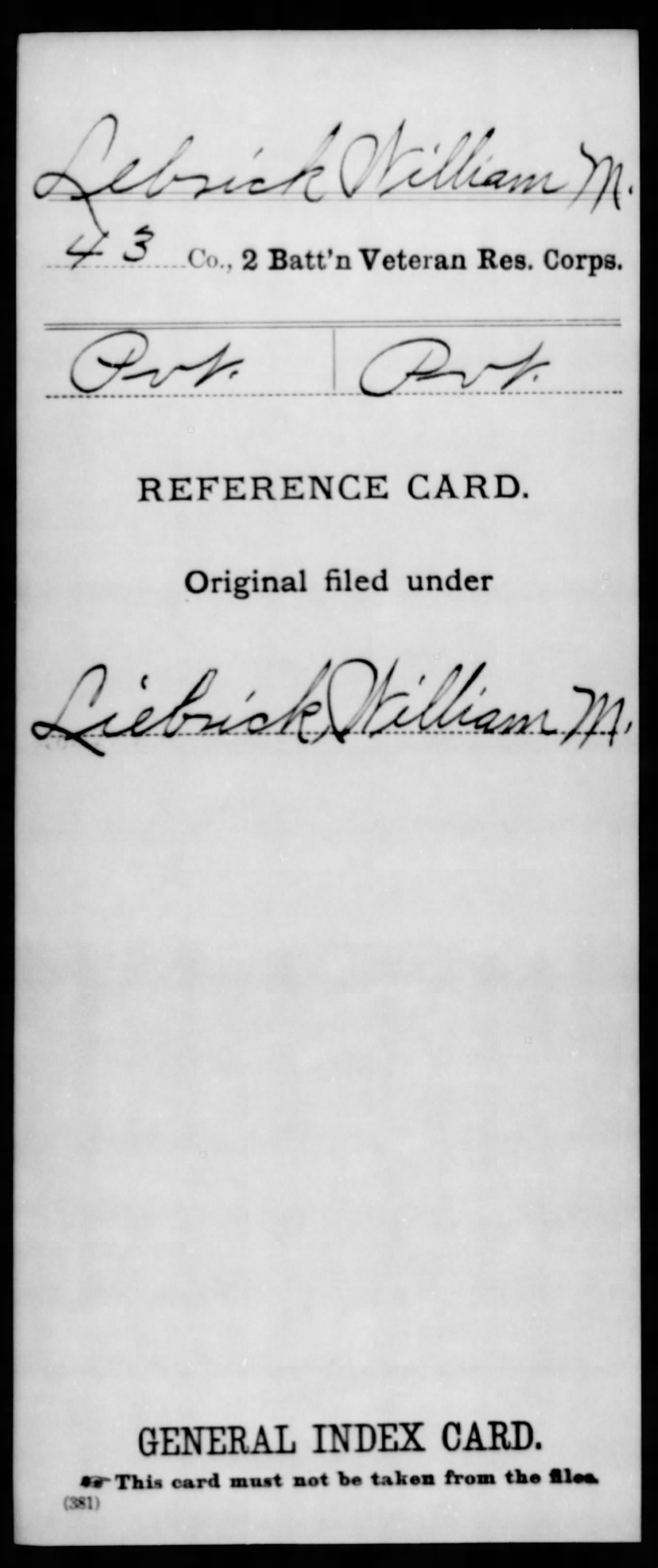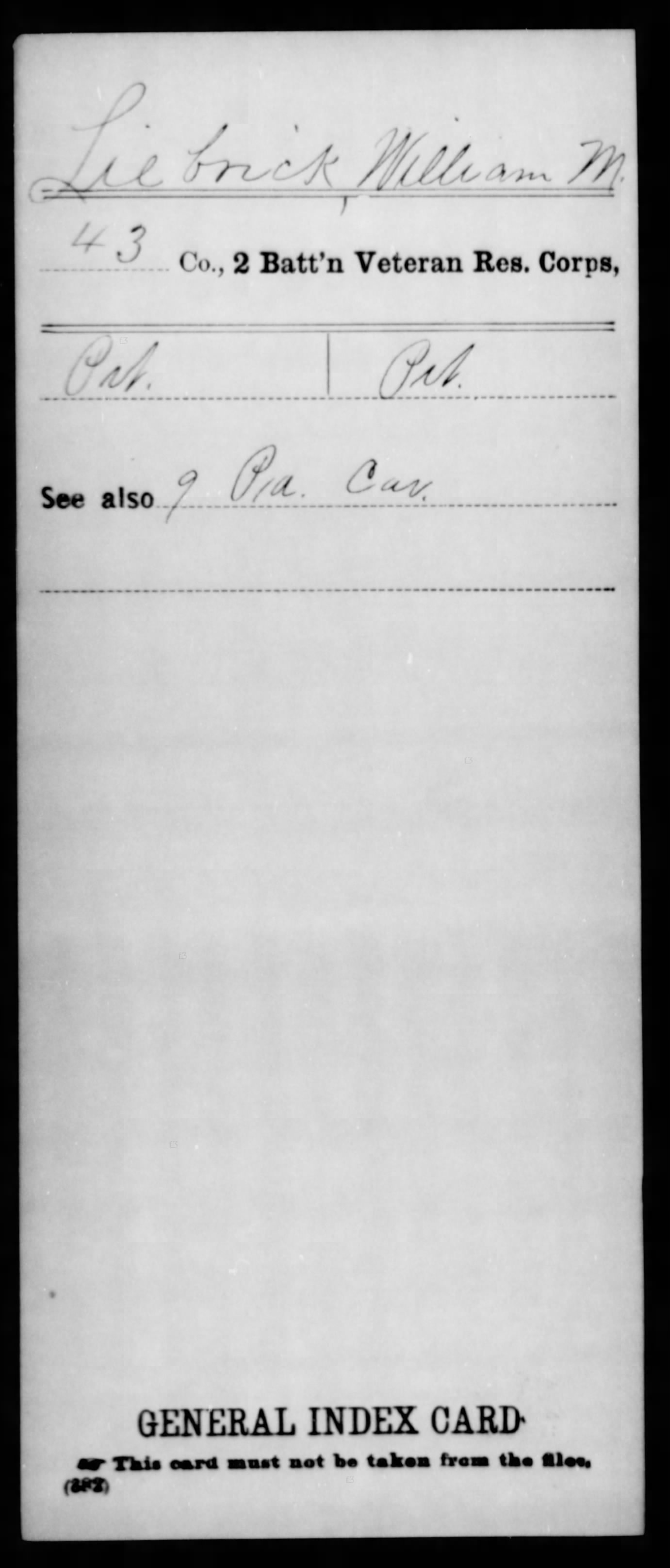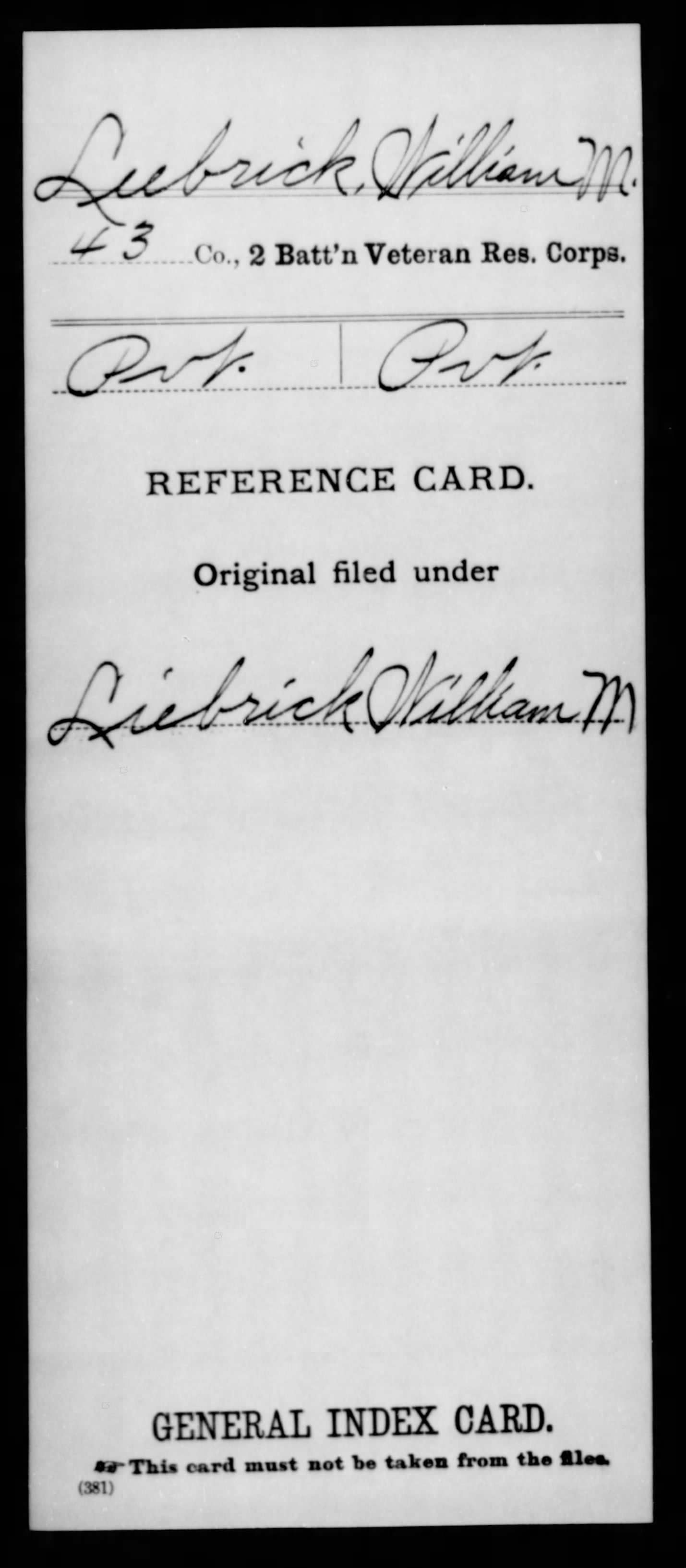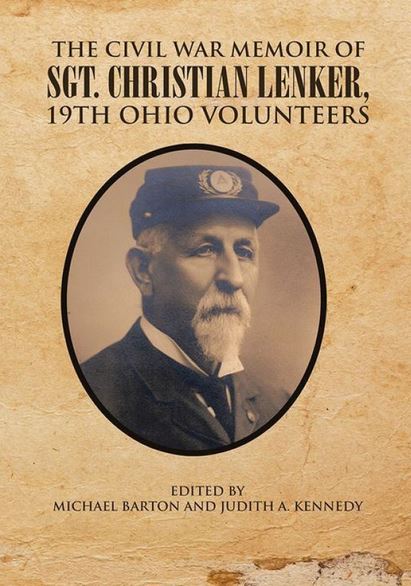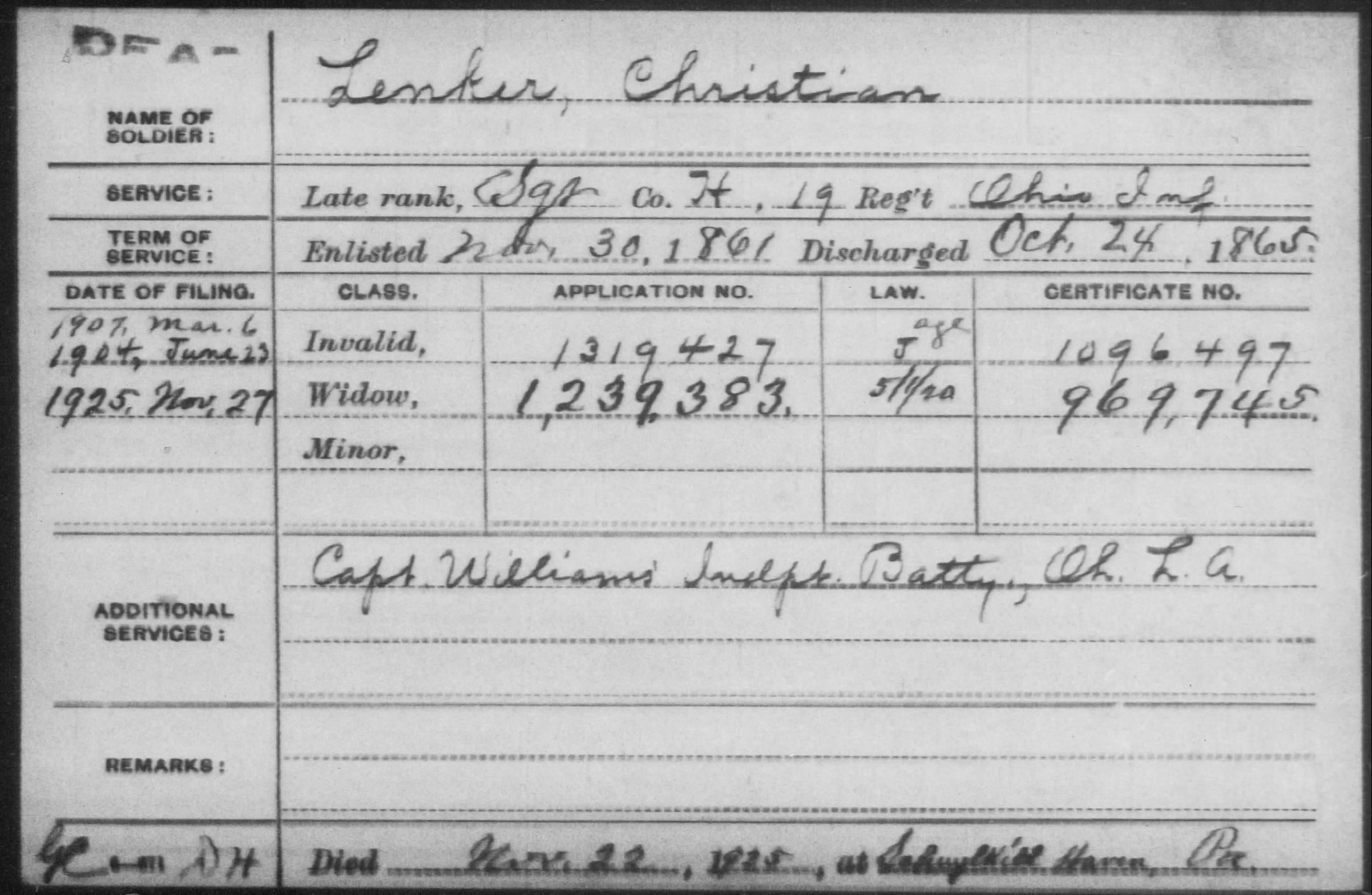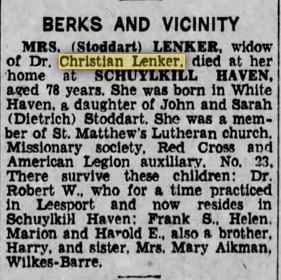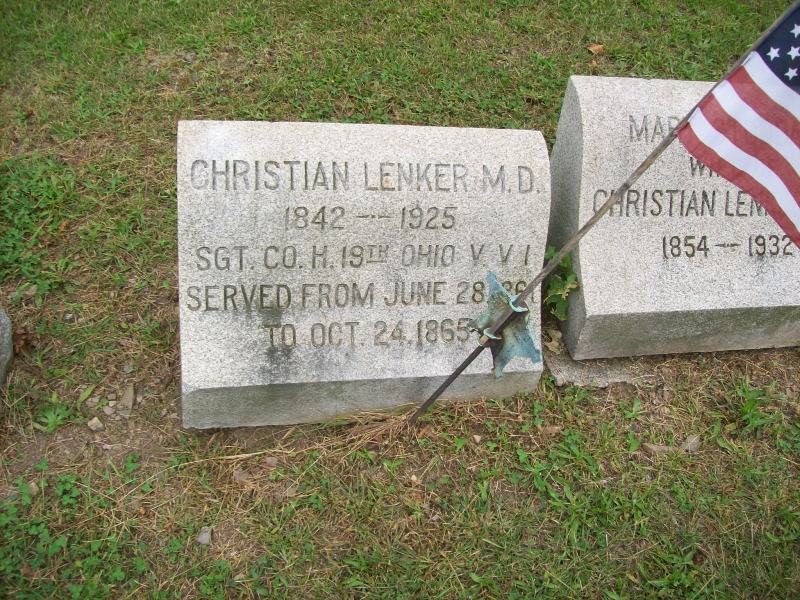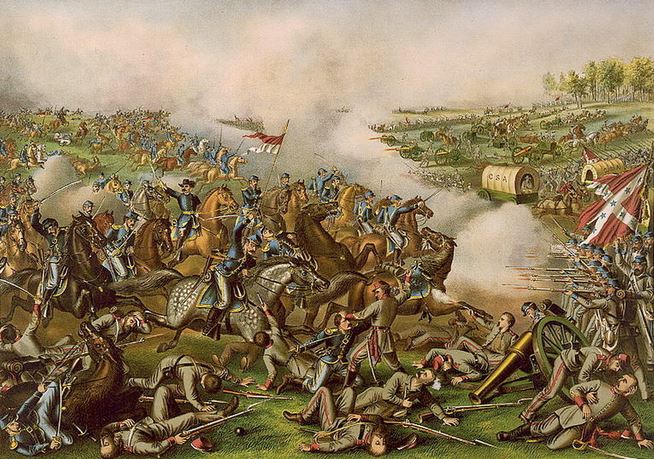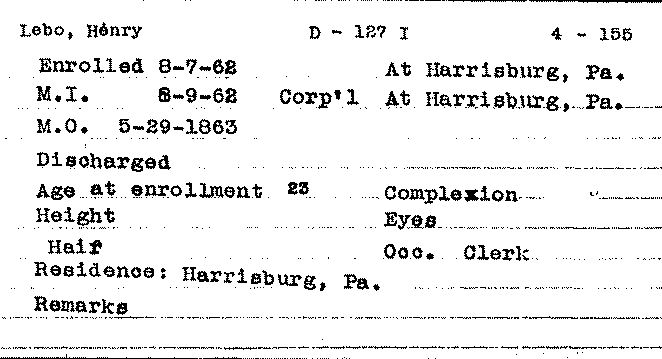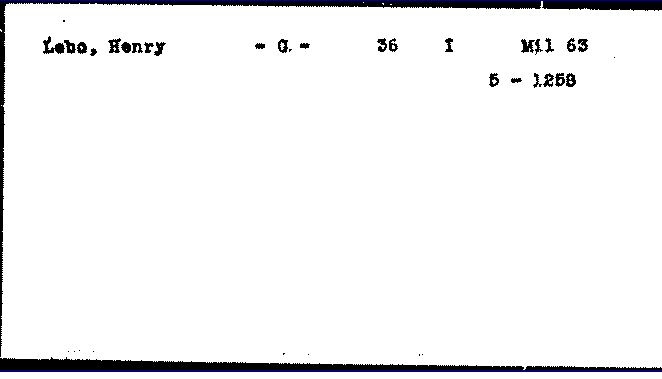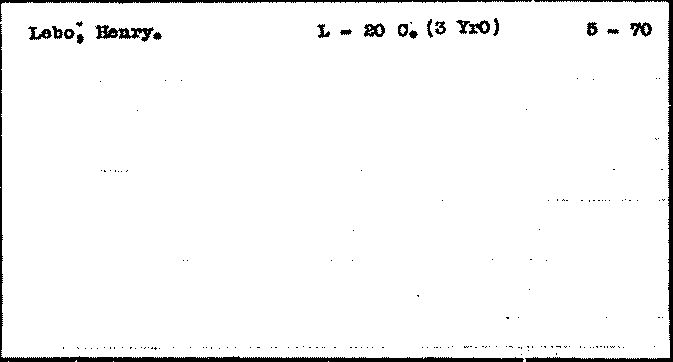Posted By Norman Gasbarro on September 28, 2016
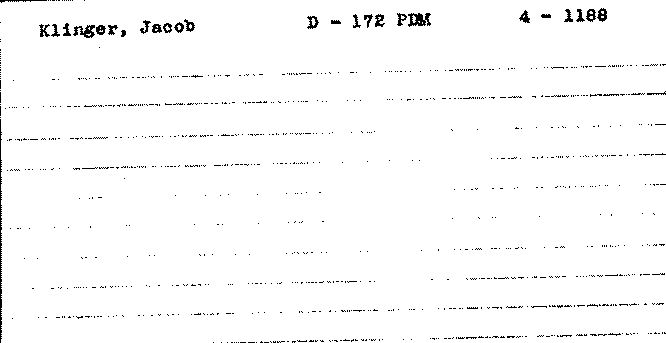
Part 3 of this murder story will be told in today’s blog post. It includes the trial and conviction of Henry Fisher for first degree murder as well as some of the antics he performed in the court during the trial and at the sentencing.
Sarah Ann [Reed] Klinger, a widow of a Civil War veteran and a pensioner, was brutally murdered in her home near Shamokin, Northumberland County, Pennsylvania, on 21 November 1906. Through the stories printed in newspapers of the time, this horrendous murder story will be told. In Part 1, the initial reports of the murder were presented as well as speculation on the motive and the arrest of Henry Fisher. In part 2, the initial courtroom appearance in February 1907 was followed by Fisher’s incarceration at the Danville Asylum so he could be evaluated for insanity.
Jacob Klinger was born on 3 April 1843 in Lower Mahantongo Township, Schuylkill County, Pennsylvania. During the Civil War, he served in the 172nd Pennsylvania Infantry, Company D, as a Private, from 27 October 1862 through 1 August 1863. Jacob Klinger died in early 1899. He had been collecting a pension, which, after his death, Sarah applied for and was receiving at the time of her murder. Jacob Klinger‘s Pennsylvania Veterans’ File Card is shown at the top of this post (from the Pennsylvania Archives).
From the Mount Carmel Item (Pennsylvania), 5 September 1907:
THE OPENING OF CRIMINAL COURT
Criminal court opens Monday September 23 and the trial list is quite heavy. Among the most important is the case of Henry Fisher accused of the murder of aged Mrs. Sarah Klinger, at Shamokin. Fisher’s conduct at the last trial, which resulted in his being incarcerated in the Danville Asylum, is well remembered.
Although it was feared that Fisher would resort to his old tactics of alleged feigned insanity, the prisoner himself, who is now in the county jail, says that he is going to be calm for the next trial.
A county official who interviewed Fisher in his cell in the Sunbury jail says that the prisoner appeared quite rational. Fisher said that he was worried a good deal. “It’s an awful thing to have to worry a man about an old woman’s death this way,” he is reported to have said.
Fisher said that he would try to get into his former condition. He was anxious, he said, to have the trial over and would therefore try to keep calm….
From the Mount Carmel Item (Pennsylvania), 19 September 1907:
200 CASES FOR SUNBURY COURT
Above Normal for September Session — Fourteen Black Handers — Two Murderers
Almost 200 cases are scheduled to come before the Northumberland County Court at Sunbury next week. This number is well above the normal amount of September sessions. Many of the cases are of more than ordinary importance.
A dozen or more Black Handers will appear before the bar of justice. The evidence against them is sufficient to put them in prison for long terms…. Two men will be put on trial for their lives, each charged with having committed an atrocious murder.
Stanley Marcavitch will be tried for the murder of a Shamokin cobbler, and Henry Fisher for the killing of Mrs. Klinger.
From the Mount Carmel Item (Pennsylvania), 24 September 1907:
THE FISHER MURDER TRIAL
Occupies the Attention of the Court All Day — Fisher is Now Sane
The Fisher Murder trial was continued this morning at Sunbury, the Commonwealth opening the case and calling its witnesses.
District Attorney Cummings and ex-District Attorney Webster Shipman represented the Commonwealth while Attorneys Welch and Welch and Morganroth are defending the prisoner.
Fisher’s behavior is somewhat different from that which he exhibited at his last appearance in court. When he was first brought in he was handcuffed and shackled with heavy chains, he was disheveled and unshaven, and he crawled under a table and cooed, laughed and emitted cat calls, which convinced everyone in the room that he was crazy. But since his experience at the Danville Asylum he has given up the insanity bluff and behaves himself like an ordinary man. His moustache is well trimmed, he is clean shaven and neatly dressed. He sits within the inner rail of the court room, with his hands clasping the arms of the chair. With eyes set deep in his head he anxiously though attentively watches every move in the case.
The evidence against him is purely circumstantial. Mrs. Sarah Klinger, with whom he and his wife lived, was found dead in her hall one day by Fisher on entering the house. He gave the alarm and the neighbors came in, but could find no trace of her assailant. She had been dead at least a day. Fisher’s shirt was found to be bloody and a waist of his in the coal shed was found with blood stains on it. He was seen the day before washing his hands at the pump in the back yard. On this evidence he was arrested.
The case has occupied the attention of the court all day and the proving of his guilt all depends on the finding that Fisher took the money which his victim had hoarded up.
From the Mount Carmel Item (Pennsylvania), 25 September 1907:
MURDERER BLAMED WIFE
But His Confession to That Effect Was Overdone
After a strong net of circumstantial evidence had been woven about Henry Fisher, now on trial in Court for the murder of Mrs. Sarah Klinger, the Commonwealth offered in evidence a written confession by the prisoner, in which he acknowledges that he was an accomplice in the crime, though affirming that his wife, and not he, committed the deed.
On the day of the murder, according to his story, Mrs. Klinger discovered that her coffee had been drugged, and accused Mrs. Fisher of trying to murder her. A warm quarrel ensued, and Fisher fled from the house. He returned returned at 4 o’clock and met his little daughter, who ran up to him and said: “Mommy’s dead.”
He went into the house and found the aged woman lying in a pool of blood. His wife said she had killed her with a stove raker in a fit of anger and had dragged the body from the kitchen to the hall steps to make it appear that Mrs. Klinger had fallen downstairs to her death. He was helping his wife remove bloodstained clothing, when someone came up the walk. He said that the woman had been killed when he was away, but the evidence against him was so strong that he was sent to jail. He did not like to implicate his wife, but the ends of justice demanded that the truth be told.
From the Harrisburg Daily Independent, 25 September 1907:
MURDERER BLAMED WIFE
Sunbury, Pennsylvania, 25 September — [the above story from the Mount Carmel Item, 25 September 1907, with an added paragraph at the end]….
The evidence in the case shows that at this time and for the rest of the day Mrs. Fisher was several miles away and her husband must have been at home alone with the body of the murdered woman.
From the Wilkes-Barre Evening News (Pennsylvania), 25 September 1907:
MURDERER BLAMED WIFE
But His Confession to That Effect Was Overborne
SUNBURY, Pennsylvania, 25 September — After a strong net of circumstantial evidence had been woven about Henry Fisher, now on trial in Court here for the murder of Mrs. Sarah Klinger, the Commonwealth offered in evidence a written confession by the prisoner, in which he acknowledged that he was an accomplice in the crime, though affirming that his wife, and not he, committed the deed.
On the day of the murder, according to his story, Mrs. Klinger discovered that her coffee had been drugged, and accused Mrs. Fisher of trying to murder her. A warm quarrel ensued, and Fisher fled from the house. He returned at 4 o’clock and met his little daughter, who ran up to him and said: “Mommy’s dead.”
From the Allentown Democrat (Pennsylvania), 26 September 1907:
Damaging Evidence Against Fisher
Sunbury — In the trial of Henry Fisher for the alleged murder of Mrs. Sarah Klinger, in her home in Shamokin, evidence of an incrimination nature was resented by the prosecution witnesses testifying that a knife Fisher had shown them before the woman woman was dead was later found in the victim’s room, and that previous to her death he said that the next time he went to jail it would be for something worthwhile.
From the Mount Carmel Item, 26 September 1907:
FISHER GUILTY IN 1ST DEGREE; HE THREATENS SELF-DESTRUCTION
Jury Convicts Fisher of Murder of Mrs. Klinger — Murderer Says He Will Commit Suicide Rather Than Wait as Long as Whittaker
Henry Fisher, of Shamokin is fo0und guilty of murder in the first degree, for the death of Mrs. Sarah Klinger, also of Shamokin. When he heard the verdict Fisher threatened to commit suicide.
The defense closed its case this morning. Physicians testified that Fisher was crazy and the Commonwealth produced evidence in rebuttal showing that the prisoner was sane,
Judge Savidge charged the jury and at 10:30 o’clock the jury retired. At 2:40 this afternoon the jury returned with a verdict murder in the first degree. How many ballots were taken or how the vote stood can not be learned, the jurymen all having been sworn to secrecy in the jury-room.
Fisher heard the verdict with a smile on his face and betrayed no emotion. While being led back to his cell he almost collapsed and upon being told to brace up as his attorneys would attorneys would make a motion for a new trial, he replied that he would kill himself before he waited as long as Whittaker had.
The trial of Stanley Marcavitch, of Shamokin, charged with the murder of Charley Salonis, the aged Springfield cobbler who was cruelly beaten to death in his shop one night and robbed of about $2000 in small coins, was called this afternoon before Judge Savidge. The jury was selected last night while the Fisher jury was being empanneled. Marcavitch was the last person known to have been with Salonis and he was seen afterward with a considerable amount of small coins….
From the Mount Carmel Item, 27 September 1907:
FIRST DEGREE MURDER
Henry Fisher Convicted of Murder — The Twelve Good and True Men Who Sealed His Fate
A 2:30 Thursday afternoon the jury in the case of Henry Fisher came into court. TAhe doors were closed, the tipstaves pounded for order. The court said, “Gentlemen, the clerk will take yo9ur verdict.” Charles Reitz then handed the verdict to Judge Savidge, who opened it in the presence of his associate, Judge Auten. The clerk then said, “Gentlemen of the jury, listen to your verdict; you say you find the defendant guilty of murder in the first degree.” Counsel for the defendant then asked that the jury be polled. This was done, the clerk calling each man’s name separately, and then adding how do you find? The answer in each case came, “Guilty of murder in the first degree.”
Juror L. D. Haupt of Sunbury, was the first called. He could hardly speak from emotion. Each following juror was similarly affected, though all answered firmly. The jury was as follows: L. D. Haupt, Sunbury; Warren Bloom, Sunbury; George Bingham Sr., Mount Carmel; Harry Bender, Mount Carmel; John Chapman, Shamokin; John O. Cawley, Milton; Daniel Farrow, Shamokin; William Hancock, Springfield; William A. Montgomery, Chillisquaque; W. H. Renn, Shamokin; John W. Russell, Turbot; Rufus Savidge, Rush.
Counsel for defense immediately said that they would move for a new trial.
Fisher was taken back to jail by Sheriff Sharpless. He of all others was the least affected by the verdict. His expression did not change, his eyes did not stop shifting from side to side; he made no sound, but followed the Sheriff like an obedient dog.
The court room was filled with spectators who stood on the seats to catch a glimpse of the prisoner. All were deeply moved as the verdict was read.
The jury said that the experience was the worst they ever encountered; that the four days they were imprisoned were like four days in purgatory. They deliberated four hours and forty minutes before they arrived at a verdict. All realized the terrible consequences to Fisher, but fearlessly rendered their verdict according to the evidence, and because they were convinced that the prisoner was guilty of murder.
Attempts Suicide
Last night, while searching Fisher in his cell, Warden McDonnell found a keen knife in his sleeve, and after a hard struggle secured the weapon. Fisher said that he had intended to cut his throat with the blade, but now that it had been taken from him, he would find some other means of committing self-destruction. He will be closely watched by the jail officials.
From the Wilkes-Barre Evening News (Pennsylvania), 27 September 1907:
WIFE’S ACCUSER TO DIE
Must Hang for Murder He Tries to Put Upon Her
SUNBURY, Pennsylvania, 27 September — Henry Fisher, who has been on trial here for the slaying of Mrs. Sarah Klinger, of Shamokin, was found guilty of murder in the first degree. The conviction of Fisher was due mainly to his own efforts to fix the crime upon his wife.
He had written letters from prison telling her that she was not as innocent as she appeared to be, and inventing an elaborate alibi which he asked her to present in court to save him.
The evidence showed that Mrs. Fisher was in another town when the murder was committed, and that her husband must have then been alone on the scene of the crime….
From the Mount Carmel Item (Pennsylvania), 28 September 1907:
GUILTY OF MURDER IN THE THE FIRST DEGREE!
Stanny Marcavich, Who Killed An Aged Cobbler, Will Hang for His Crime — He and Fisher Laugh Over Verdicts
Another man has this week [has] been found guilty of murder in the first degree by a jury at Sunbury. The two similar verdicts reached in one week will have a salutary upon evil doers in Northumberland County… and the gentlemen who composed the two juries are entitled to the unstinted praise and thanks of all good people….
When Macavich was hustled out of court toward the county jail, he puffed at a cigarette, and remarked to the Sheriff that “he didn’t care a damn.” He seemed to be absolutely indifferent of consequences. His lawyers have not yet entered a motion for a new trial, and it is not likely that they will.
When Marcavich landed in jail he was taken past the cell occupied by Henry Fisher, the man who was this week found guilty of murder in the first degree for having killed Mrs. Klinger at Shamokin.
Fisher had been weeping and moaning, but when Marcavich reached the door of his cell the murderer straightened up and called out:
“Helo, Stanny, what did you get?”
Marcavich replied, “same as you, Hen.”
Then both men laughed. They are heartless wretches, both of them, and the sooner they are hanged the better.
From the Daily News (Mount Carmel, Pennsylvania), 30 September 1907:
SEPTEMBER TERM OF COURT ENDED
The September term of criminal court ended with the session Saturday night, having occupied one solid week and a busy week, too. There were several cases co9ntinued until the December court, among them the Black Hand cases.
The murder cases were tried last week and both of the accused, Henry Fisher and Stanley Marcavitch, were found guilty of murder in the first degree. At the last term of court there was one case and the accused, William J. Whittaker, was found guilty in the first degree. It looks as though Northumberland County is going to redeem herself as to allowing murder to go un-avenged. The vigor with which the district attorney’s office handled the cases had very much to do with the findings of the jury and our townsman, Thomas N. Burke, is largely responsible for the work of the office in these cases.
From the Daily News (Mount Carmel, Pennsylvania), 1 October 1907:
FISHER SAYS HE IS CRAZY
The Condemned Murderer Breaks Up Furniture and Lands in Dungeon
Henry Fisher, the man found guilty last week of murdering aged Mrs. Sarah Klinger, was confined in the dungeon of the county jail yesterday afternoon. He is still in that unpleasant rookery in the jail basement. He will probably remain there for some time.
Yesterday afternoon he told his keeper that he was going to get crazy again, and just to prove that he really meant it he proceeded to smash things in his cell. He broke his lamp, smashed his table into small bits, broke his chair and his cot. It looked dangerous for a minute for the keeper to go after him, but the man was not put there for his cowardly qualities and he proved himself game. He ordered Fisher to keep quiet and boldly walked into the cell and collared the fiend. He was then taken to the dungeon where he can not smash things and can not harm himself.
From the Wilkes-Barre Times Leader (Pennsylvania), 1 January 1908:
NEW CHANCE FOR FISHER
Vigilant Counsel for Convicted Murderer Carry a Point
SUNBURY, Pennsylvania, 1 January 1908 — Counsel for Henry Fisher, who murdered Mrs. Sarah Klinger in Shamokin, won a victory yesterday in their fight to save his life, when court named January 13 as the date for them to present arguments why he should not be executed.
Last week the court decided the case would not be allowed to go over to a new district attorney, but Fisher’s counsel won out, claiming that they had not received the judge’s charge to the jury until it was too late to complete their reasons.
From the Philadelphia Inquirer, 12 January 1908:
Reasons for New Trial of Fisher
Special to the Inquirer.
SUNBURY, Pennsylvania, 11 January — New reasons for another trial were filed in Northumberland County Court today by counsel for Henry Fisher, convicted of murdering Mrs. Samuel Klinger, in Shamokin. The principal reason is that letters which passed between Fisher and his wife should not, according to the defense, have been admitted as testimony. Another strong reason is that a man who identified the weapon with which the woman was slain should not have been allowed to do so.
From the Mount Carmel Item (Pennsylvania), 7 February 1908:
TWO MEN SENTENCED TO DEATH
Judge Savidge Pronounces Doom of Henry Fisher and Stanny Marcavige – Scene in Court Room
President Judge Clinton R. Savidge, in Court at Sunbury this morning, sentenced Henry Fisher and Stany Marcavage, two convicted murderers, to be hanged.
Fisher murdered Mrs. Sarah Klinger. Marcavige murdered Charles Yeschalonis, an aged Springfield cobbler. Both condemned men are Shamokinites.
Fisher, it will be remembered, shammed insanity at his first trial, raving in the court room like a mad dog. He was sent to the Danvlle Asylum, and there the authorities found that he was faking. He was brought back to Sunbury, tried, and found guilty of murder in the first degree. He has had recurring outbreaks of alleged insanity, but on each occasion recovered his reason when thrown in the dungeon.
When Judge Savidge asked Fisher this morning why sentence of death should not be pronounced, the prisoner, who was heavily shackled, attempted to bite out a piece of Sheriff Taby’s arm. He got a punch on the jaw, and then he dropped to the floor and bit a piece out of a chair.
The Judge, unmoved by the outbreak, then declared that “he should be hanged by the neck until dead.”
Marcavige, when asked the same question, cried out, “I did not strike the blow!” He admitted he was present, but did not commit the murder. At his trial, when he was found guilty of murder in the first degree, he declared that he was not near Yeschalonis when the murder was committed.
The death sentence was then pronounced on Marcavige, who remained cool and unnerved.
According to law, the time for the executions will be fixed by the Governor of the Commonwealth. Northumberland County will then partly atone for its black record of crime by having two hangings.
From the Pittston Gazette (Pennsylvania), 8 Feb 1908:
FEIGNED INSANITY BUT WILL BE HANGED
Sunbury, Pennsylvania, 8 February — Henry Fisher, convicted of murdering Mrs. Sara Klinger, his boarding mistress, two years ago, was sentenced to death by Judge Savidge yesterday. He feigned insanity at the trial and was examined by a commission which pronounced him sane. He tried again to convince everybody he was crazy. When the court ordered him to be brought to the court room, he resisted Theodore Pulaski, turnkey, lacerating his hand by biting him. Sheriff William Aby assisted and half dragged and carried him to the court house entrance, where he made a desperate effort to escape. He was overpowered and hauled into the crowded court room. As the judge delivered the sentence Fisher sat quiet. Then he suddenly began biting the back of a chair and tried to tear a piece of flesh out of the sheriff’s neck. Fisher said he was wild and wanted to tear things. He was further manacled and led back to jail without resistance. He was undressed and robed in a new suit of clothes.
In a corner of the cell officers found a sharp piece of iron Fisher had concealed, evidently with the intention of killing himself or some one else. Recently he tried suicide.
Stanny Marcavage, convicted of the murder of Charles Yeschalenic, a Springfield cobbler, whose head he battered in with a hammer, was asked if he had anything to say. He replied that he did not strike the blow that killed the cobbler, but was sentenced to death. He and Fisher will likely be executed at the same time.
From the Pittston Gazette (Pennsylvania), 10 February 1908:
MURDERER RAVES LIKE WILD BEAST
Amid wild scenes of confusion, and in the presence of a crowd of curious people that completely filled Court Room No. 2, Henry Fisher, murderer of Mrs. Sara Klinger, in Shamokin, and Stany Marcavage, slayer of Charles Yesalonis, a Springfield cobbler, were sentenced to death on the scaffold by Judge Savidge, of Sunbury.
Fisher had to be dragged from his cell to the prisoners’ deck and while the solemn words were pronounced, he grawed at the oaken arms and back of the chair like a wild beast.
Marcavage listened to the decree with a smile on his face and asserted that he would go to the gallows laughing, because he was innocent of the awful crime charged against him. When asked if he had anything to say, he replied he did not kill the cobbler.
Some news articles from Newspapers.com.
Category: Research, Stories |
Comments Off on Sarah Klinger – Civil War Widow Bludgeoned to Death in 1906 (Part 3)
Tags: Women
 ;
;
